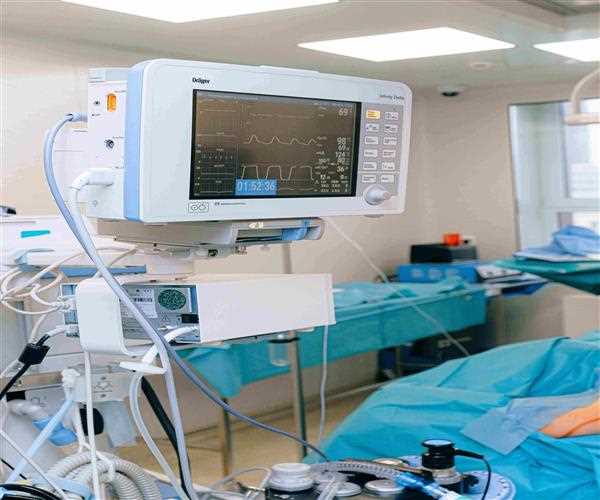What is dialysis?
Dialysis is a treatment for kidney failure that removes unwanted toxins, waste products, and excess water from the body by filtering the blood. When the kidneys fail, it can be difficult for the body to purify the blood and maintain the chemical balance of the system. Dialysis can replace some kidney functions and you can live longer with medication and proper care.
Why do you need dialysis?
When chronic kidney disease (CKD) reaches end-stage renal disease, also known as kidney failure or stage 5 kidney failure, the kidneys can no longer filter and purify the blood like a healthy kidney. If left untreated, life-threatening waste and toxins build up in the body. At this point, you will need dialysis treatment to prolong your life until you have a kidney transplant. If you have conditions such as high blood pressure and diabetes, you may need treatment, such as a kidney transplant or dialysis, because your risk of kidney failure increases. Dialysis helps remove excess fluid from the body and control blood pressure. Working with your doctor to control your blood sugar and blood pressure can help your kidneys work longer.
Doctors use a series of kidney function tests to determine kidney health. Most people start dialysis treatment when the GFR is less than 15. This means you have lost about 85-90% of your kidney function. Early diagnosis and regular screening for CKD can help keep your kidneys functioning as long as possible and, if necessary, allow you and your doctor to plan treatment for ESRD.
What is dialysis: facts at a glance
- Kidney dialysis is a treatment that can help you tolerate ESRD well.
- Dialysis allows the kidneys to perform normal functions that they can no longer perform on their own. Dialysis helps balance the potassium, phosphorus, and sodium levels in the body.
- Dialysis allows you to live a full and active life with kidney failure. There are two types of kidney dialysis: hemodialysis and peritoneal dialysis.
- More and more people are choosing home dialysis because it offers flexibility and better results. The dialysis option that is best for you is the one that fits your lifestyle and health needs.
Many people change their type of dialysis during long-term treatment to accommodate a changing lifestyle.
How does the dialysis process work?
Dialysis works like an artificial kidney, filtering toxins, waste, and body fluids from the blood through a semipermeable membrane that passes body fluids and small particles, but not large particles. Two types of dialysis, hemodialysis and peritoneal dialysis, use different methods to filter toxins from the body. In hemodialysis, the filter membrane is called a dialyzer and is located inside the dialyzer. The blood is distributed by dialysis and is clean before returning to the body. The dialysis of the person does not leave the body and the abdominal filter. Both types of dialysis use dialysate during the filtration process to help remove unwanted substances.
Comparison of two types of dialysis
Hemodialysis and peritoneal dialysis remove unwanted waste from the body. Depending on the type of dialysis treatment you choose, you can choose dialysis at home or a dialysis center.
Peritoneal dialysis
Peritoneal dialysis uses blood vessels in the lining of the abdomen (the body's natural filter) with a solution called dialysate to filter out toxins. In this method, the peritoneal catheter serves as an entrance to the abdomen and the blood does not leave the body. Home peritoneal dialysis can be performed on a machine or manually, at home, at work, or while traveling.
Hemodialysis
Hemodialysis filters the blood through a dialyzer or dialyzer. With hemodialysis, when connected to a machine, blood flows into the machine where it is filtered and returned to the body. Hemodialysis is performed at home or a dialysis center. Hemodialysis at home can be done in the comfort of your own home, with the help of a medical partner, or on your own. The center's hemodialysis is performed by a team of trained nurses and technicians.
How long does dialysis take?
For hemodialysis, the duration and frequency of treatment depend on your doctor's prescription and the location where you receive the treatment.
Home hemodialysis can be performed for 2 1/2 to 3 hours 5-6 days a week, 3-5 hours 3 days a week, or 6-8 hours every night or every other day. Depending on your unique condition, you may need longer treatments each week or a different number of treatments. Central hemodialysis is usually given 3 times a week for 3-5 hours a day, and night hemodialysis for 8 hours.
The duration of your peritoneal dialysis treatment depends on whether you choose continuous ambulatory peritoneal dialysis (CAPD) or automated peritoneal dialysis (APD).
CAPD treatment is performed manually, without a device, approximately 3-5 times a day. APD uses a car called 'Cycler' and can make some short sessions or these sets while sleeping.
The dialysis treatment is prescribed by a doctor. You and your doctor will discuss your treatment options together and decide which one is right for you. If you decide to have dialysis, your doctor will determine when and how often to treat you based on your unique health needs. It is important to complete your dialysis treatment exactly as directed to feel better.




Leave Comment